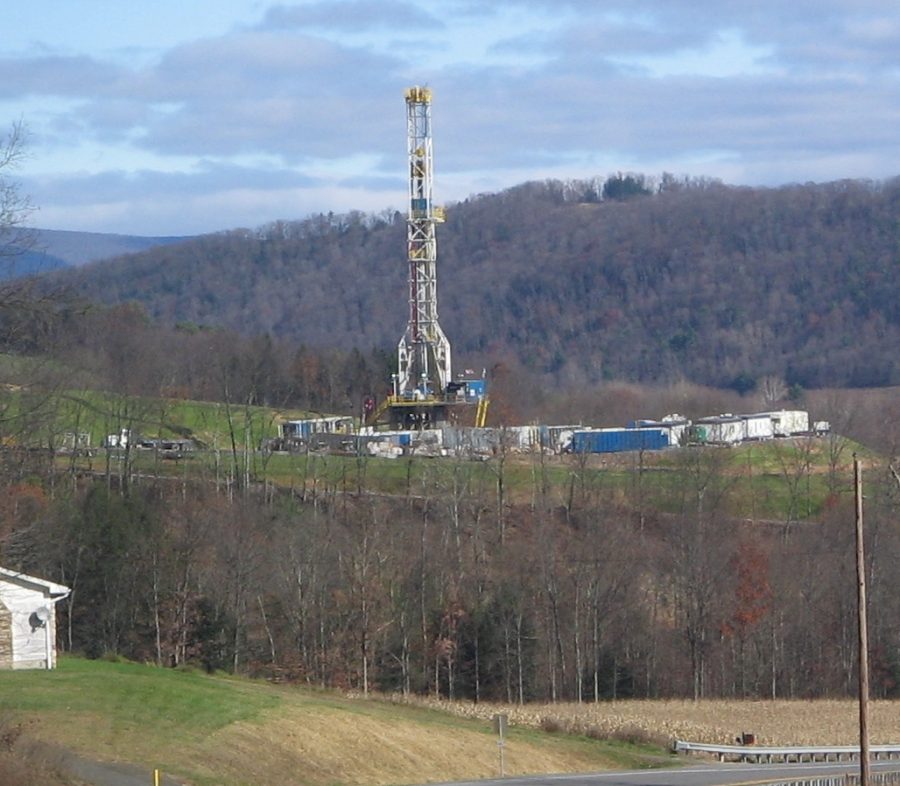Natural gas, heaters, and climate change: what you need to know
*Check out this column and others by scrolling to the bottom of the main page.
Time seems to be flying. It seems like August was only yesterday, and the first day of school was in front of us. The days go by, and the seasons come and go. Summer and fall have passed us by, and the winter is coming to a close as well. However, with the springtime and the cold, wet rains that come along with it, many of us may want to crank up the thermostat. Before you turn the heater up, however, there are consequences in doing so that you should be aware of.
All heating systems need some sort of energy source in order to operate. Most California homes utilize natural gas furnaces in order to provide heat during those cold, dreary rainy days.
Now, the use of natural gas poses significant problems for a number of reasons—for starters, natural gas is not exactly the most environmentally friendly energy source out there, as it releases a good amount of carbon dioxide when burnt. This is problematic for obvious reasons. Additionally, the extraction of natural gas is extremely difficult and time consuming. Most of the rich, easily accessible gas deposits across the world have been fully depleted.
As a result of widespread gas deposit depletion, drilling companies have to resort to dirter, more expensive and less efficient drilling methods. One such method is called fracking. In short, fracking is when they pump high-pressure liquid mixtures into rock layers in order to blast out the gas. It allows for more natural gas to be mined than ever before. However, it has many significant drawbacks, including the leakage of natural gas into the atmosphere.
This kind of leakage is often caused by cracks in soil and rock layers that allow gas to vent from deposits directly into the atmosphere. Seeing as how natural gas is a potent greenhouse gas, this poses quite the problem.
Unfortunately, there is not much that each of us individually can do about the problems related to gas extraction. It’s not like we can go out to our local gas drill and flip a switch to shut down any drilling operations. However, the next best thing that we can do is to reduce our natural gas usage. Since most of us utilise natural gas heaters to heat our homes, the logic follows that in order to reduce gas usage, we have to reduce our heater usage.
Now, I realize that warmth is both a biological and physiological need that we all crave. After all, it’s what makes a home feel like home. However, I must make it clear that I am not telling you to shut off your heaters and live like our prehistoric ancestors did all those years ago. What I am suggesting, however, is for you to perhaps turn off or turn down the heat during the colder winter months. For instance, when you’re sleeping, the majority of you will be wrapped up in a blanket. Therefore, I suggest that you lower or turn off the heater during the night. Additionally, if it’s not as cold, perhaps all you need to do is wear that sweater your grandma bought you, or a jacket that you’ve forgotten about for the past year. Layering up is an awesome way to cut down on heater usage.
Hopefully, the next time it gets cold (which won’t be very far into the future), you will keep these tips in mind. Remember that the less natural gas we use, the less natural gas will be leaked into the atmosphere and the less carbon dioxide will be released. If the recent Gamestop incident has taught us anything, with coordination and willpower, we have the power to foment change. If we all cut down on natural gas usage, that’s one household’s worth of gas not being burned or vented. After all, every big change starts with a small action.
Your donation will support the student journalists of Dublin High School. Your contribution will allow us to purchase equipment and cover our annual website hosting costs.

Jacob Siauw is a junior at DHS. During his freshman year, he wrote a regular column for the Shield. Before stopping during his junior year, he used...



































